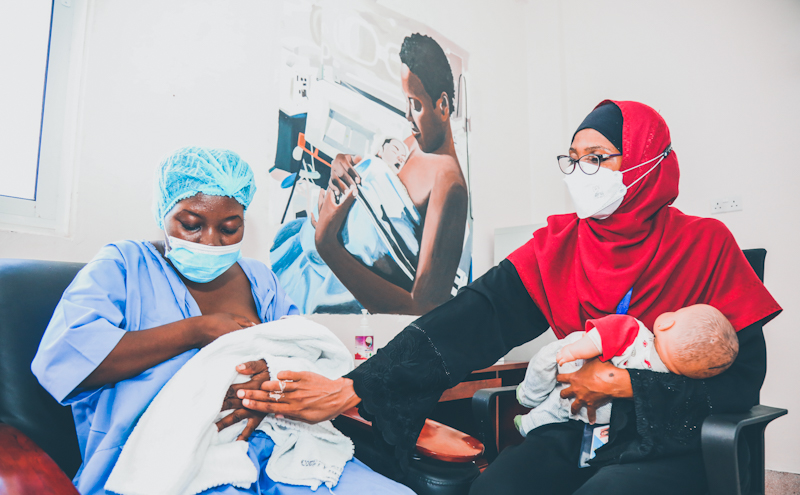Kenya has partnered with the U.S. Government through the U.S. Agency for International Development (USAID), Vodafone Foundation, Safaricom in Kenya, and M-PESA Foundation to introduce m-mama into the country.
This emergency referral system aims to provide swift transport for pregnant women and newborns facing complications to quality healthcare facilities.
The m-mama referral initiative has been shown to contribute to a 38 per cent decrease in the number of maternal deaths in pilot locations in Africa. This public-private partnership is pioneering the m-mama approach to enhance maternal and newborn health and reduce the current maternal mortality rate of 355 per 100,000 live births in Kenya.
.@PeterNdegwa_ In this partnership, @SafaricomPLC through M-PESA Foundation has invested just under KES 150 million to fund the one-time set-up costs. With m-mama we can quickly reduce maternal and newborn deaths by 30-40%. pic.twitter.com/Y5dPMJqVG1
— M-PESA Foundation (@MPESA_FDN) June 21, 2023
How m-mama emergency referral system works
M-mama is a referral system specifically created for pregnancy, labour, or newborn emergencies. It provides a charge-free number and a 24/7 call centre that connects women with fast and safe transportation to high-quality healthcare facilities.
The call centre sends an ambulance, or a community or taxi driver trained to handle the transportation of obstetric emergencies. They have the equipment they need to get patients safely to the hospital.
The community or taxi driver is identified through the m-mama mobile app and then paid immediately once safely at the hospital, at no cost to the m-mama emergency referral system
Kenya has made significant progress towards improving maternal and child health, with most pregnant women (90 per cent) delivering in health facilities.
However, it’s estimated that over 6,000 women and 35,000 newborns still die annually from preventable complications.
“It is estimated that 6,000 women and 35,000 newborns in Kenya die annually from various complications,” Health CS Susan Wafula said during the launch in Nairobi.
“M-mama will certainly catalyse health sector collaborations and partnerships for safe motherhood thereby accelerating the achievement of many of maternal and perinatal targets,” the CS said.
Therefore, efforts need to be accelerated to reduce the current maternal mortality rate of 355 per 100,000 live births to reach the Sustainable Development Goal (SDG) target of 70 deaths per 100,000 live births by 2030.
According to USAID, m-mama has been shown to contribute to a 38 per cent decrease in the number of maternal deaths in the pilot countries in Africa.
“Since it was created in 2013, m-mama has transported over 28,000 women and newborns and is conservatively estimated to have saved 900 lives,” a statement from USAID said.




